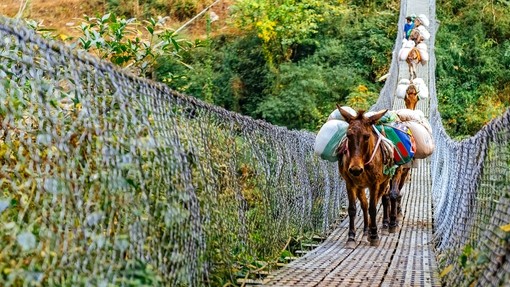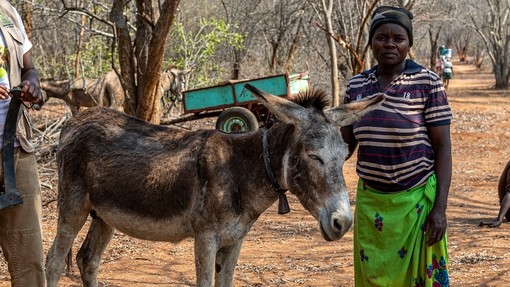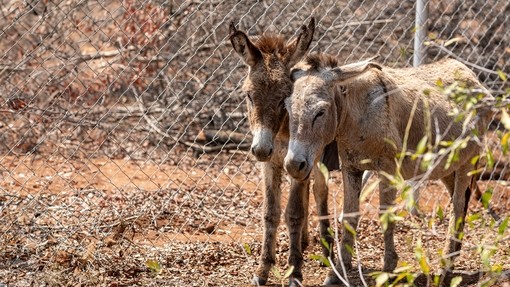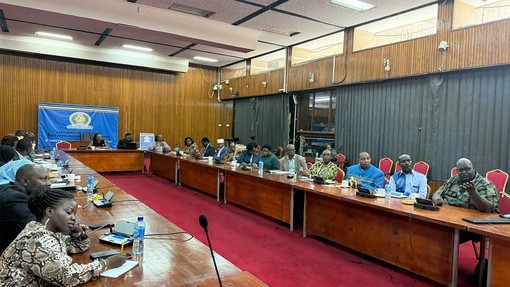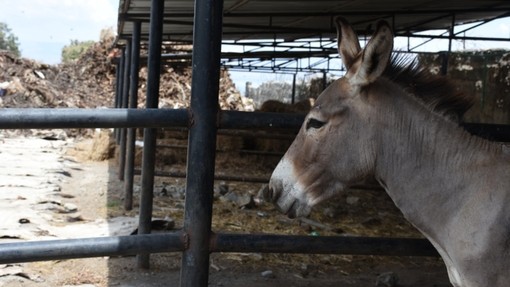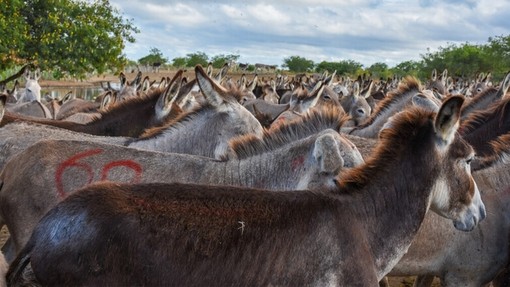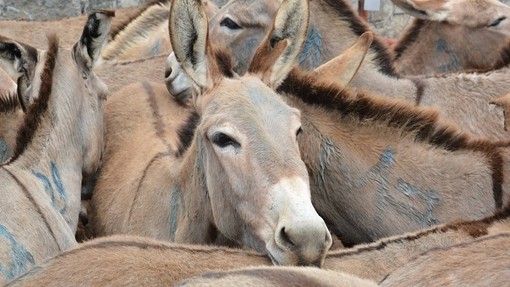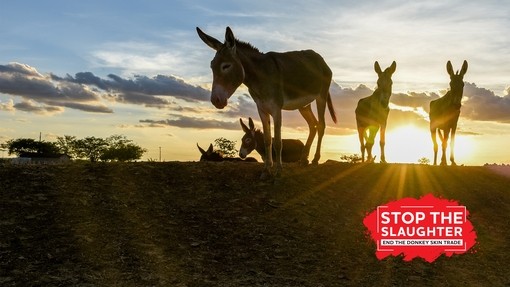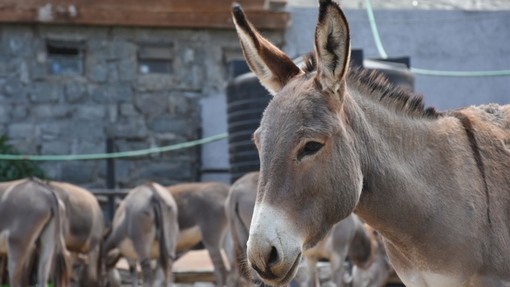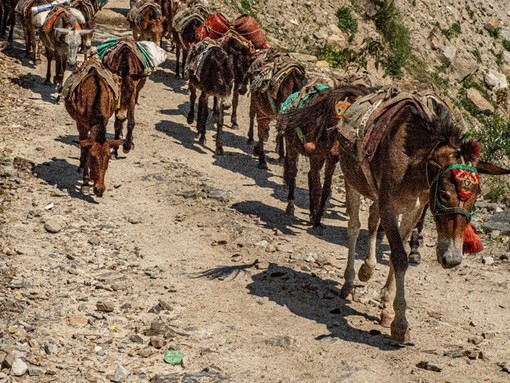
Valuing working equids in disaster zones
Ten years ago, on 25 April 2015, the worst earthquake in Nepal’s history struck, claiming nearly 9,000 lives and leaving millions without homes. Entire villages were flattened, infrastructure crippled, and aid efforts stretched to their limits. The world watched as rescue teams worked tirelessly to save lives and rebuild communities.
For countless families, particularly in rural and mountainous regions, survival and recovery relied heavily on their working equids who transported food, medical supplies, and construction materials to places inaccessible by vehicles and other livestock.
Working equids are not only vital lifelines during times of disaster- they play a crucial role in everyday survival. In many lower-middle-income countries, donkeys, mules and horses are far more than companions; they support the livelihoods and resilience of some of the world’s most marginalised communities. Yet, despite this vital contribution they are routinely excluded from national and international disaster measures.
In a significant milestone, the United Nations formally recognised the vital role of working animals in disaster risk reduction through a resolution adopted in November 2024, following years of advocacy from animal welfare organisations. Led by the International Coalition of Working Equids (ICWE), made up of Brooke, The Donkey Sanctuary, World Horse Welfare and SPANA, this marked a critical step towards ensuring these animals are included in humanitarian efforts and disaster planning.
The 10-year anniversary of the Nepal earthquake is an opportunity to reflect: in the face of disaster, how do we protect the very animals that help communities rebuild? And have we made enough progress in ensuring their welfare is recognised as part of humanitarian aid?
To explore these questions, Dr Ramesh Kumar, Consultant Veterinarian shares his experience from the frontline of increasing climate-related disasters in South Asia and why he believes working equids must be at the heart of disaster resilience policy.
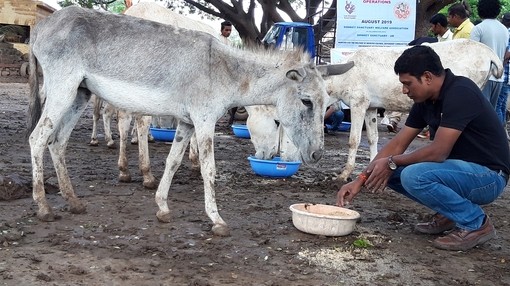
Relief for desperate donkeys in Indian floods
“When catastrophic monsoon rains struck Maharashtra in 2019, almost a million people were forced to flee and at least 150 lives lost. But it was not only people who suffered. In some of the most severely affected areas, hundreds of donkeys- mainly used for transporting bricks in local kilns- were left tied up and exposed to rapidly rising waters.
“At a time of disaster, working animals are seldom a priority. But with support from The Donkey Sanctuary, the Donkey Sanctuary Welfare Association (DSWA) was able to act rapidly, reaching the animals and owners most in need.
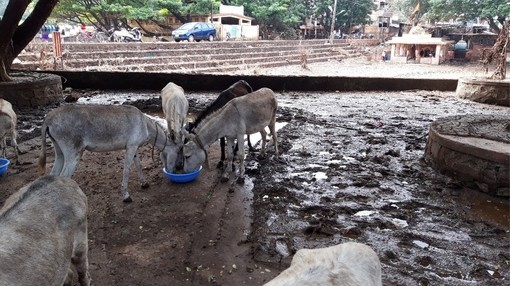
“As a team we focused on hard-hit areas like Vishnughat, where the Krishna River had reportedly risen to 8ft and 68 donkeys were reported missing. Other areas including Krupamai, Subash Nagar, Shamrao and Ghandi Chowk saw further losses, with over 165 donkeys feared dead or displaced.
“With grazing land submerged and owners unable to work, affording feed became impossible. Emergency support included veterinary care, feed and mineral supplements, clean water, and temporary shelter. We carried out welfare checks, administered tetanus vaccinations, and coordinated proper disposal of deceased animals in order to prevent further health risks.
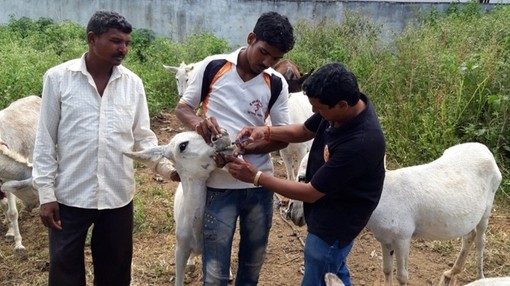
“As a field officer, I ensured that donkey owners could access compensation - matching the support offered to other livestock owners. I also helped facilitate meetings with local officials and guided owners through the formal process of submitting claims, advocating for equal treatment.
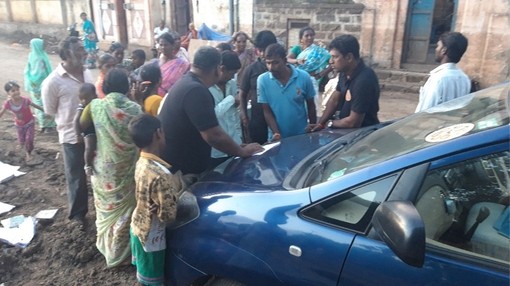
“Without this intervention, many donkey owners would have been unable to keep their animals alive. And while the immediate devastation was clear, the long-term impact of losing these animals- on livelihoods, mobility and economic stability- would have been just as damaging.
“This operation shone a light on a silent crisis: in disaster zones around the world, working equids are often overlooked in emergency planning and relief. But donkeys are not optional extras in South Asia and communities across the world - they are vital to recovery.
“The response in Maharashtra also marked a turning point. In November 2019, India’s National Disaster Management Authority formally recognised the importance of animals in disaster reduction and recovery. India’s updated policy includes provisions for rescue, veterinary care, feed, water, and livestock shelters- ensuring working animals are accounted for in disaster relief operations.”
A One Welfare approach in Nepal
Recent earthquakes in Jajarkot, Nepal- including a 6.4 magnitude quake in 2023 and a 5.5 in April 2025- have brought the need for working equids to be included in disaster risk reduction policy into sharp focus. In areas like Jarjakot, where donkeys and mules are vital to daily life and livelihoods, these disasters highlight the urgent need for holistic approaches that protect animals, people and the environments they share.
Recognising this, we have begun a new partnership driven by the principles of One Welfare to launch a project which will improve the lives of Nepal’s mules, the people who depend on them and environmental resilience.
Our partnership is formed of a group of local charities and organisations led by Aasaman Nepal, a local organisation that campaigns against child labour, alongside the animal welfare group Animal Health Training and Consultancy Service, Health Concern, a public health organisation, and the Preservation of Environment and Social Welfare Association of Nepal, an environmental organisation.
Through research, community engagement, and hands-on veterinary support, our project aims to create lasting, positive change, ensuring that both people and animals thrive together while also contributing to more sustainable practices.
As the frequency and intensity of climate-related disasters continues to rise, the need for comprehensive and inclusive national disaster management planning becomes ever more urgent. Working equids are essential to the resilience of countless communities across the world. Yet, their role is often overlooked in policy and preparedness.
Acknowledging and addressing this silent crisis is not just an animal welfare matter, but a critical step towards safeguarding human wellbeing, livelihoods, and recovery efforts in the face of the climate crisis.
Share this page
Tags
- Blog

